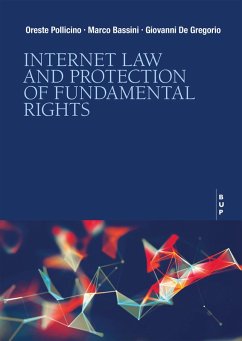
Judicial Convergence and Fragmentation in International Human Rights Law (eBook, ePUB)
The Regional Systems and the United Nations Human Rights Committee
Versandkostenfrei!
Sofort per Download lieferbar
78,95 €
inkl. MwSt.
Weitere Ausgaben:

PAYBACK Punkte
39 °P sammeln!
This book provides an innovative analysis of the complex issue of judicial convergence and fragmentation in international human rights law, moving the conversation forward from the assessment of the two phenomena and investigating their triggering factors. With a wide geographical focus that include the most up-to-date case-law from the three main regional systems (the African, European and Inter-American) and the UN Human Rights Committee, the book confirms the predominant judicial convergence across international human rights law. On this basis, the book engages with an interdisciplinary inv...
This book provides an innovative analysis of the complex issue of judicial convergence and fragmentation in international human rights law, moving the conversation forward from the assessment of the two phenomena and investigating their triggering factors. With a wide geographical focus that include the most up-to-date case-law from the three main regional systems (the African, European and Inter-American) and the UN Human Rights Committee, the book confirms the predominant judicial convergence across international human rights law. On this basis, the book engages with an interdisciplinary investigation into the legal and non-legal factors that could explain both convergence and fragmentation, ranging from the use of judicial dialogue and the notions of necessity and proportionality to the composition of the courts and the role of NGOs. The aim is to provide the tools to understand the dynamics between human rights adjudicatory bodies and possibly foresee future instances of judicial fragmentation.
Dieser Download kann aus rechtlichen Gründen nur mit Rechnungsadresse in A, B, BG, CY, CZ, D, DK, EW, E, FIN, F, GR, HR, H, IRL, I, LT, L, LR, M, NL, PL, P, R, S, SLO, SK ausgeliefert werden.













